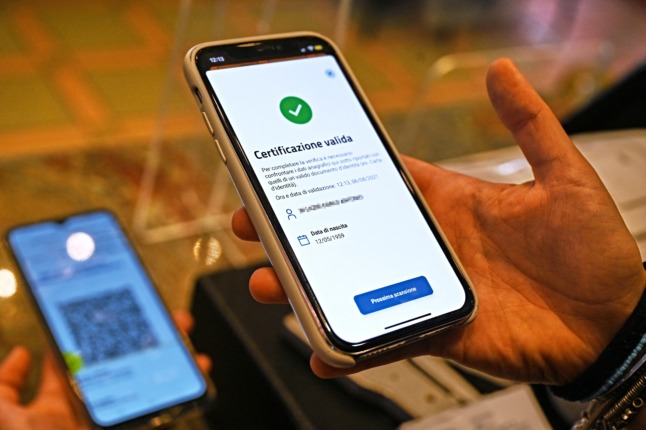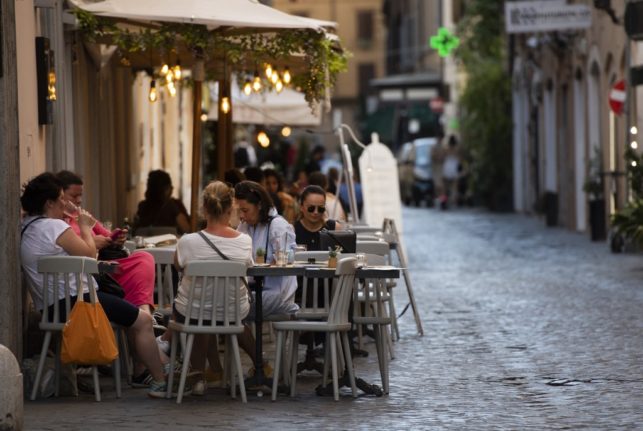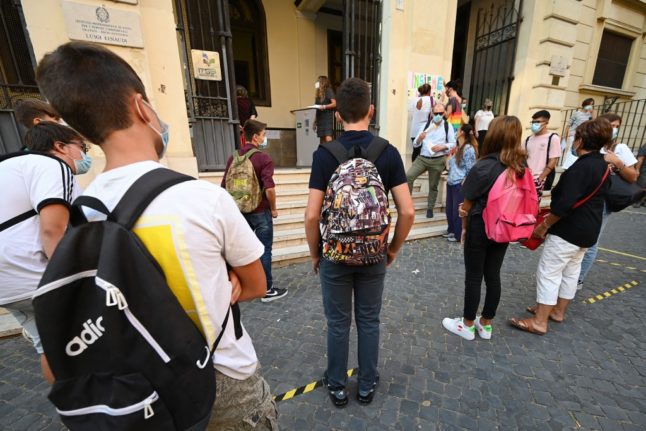Italian authorities changed the rules on the Covid-19 health certificate on April 1st, as part of the government’s plan to end the current Covid restrictions by early summer.
Since it was introduced last August, the green pass has been extended several times with the rules around its use changing according to the government’s assessments of the health situation.
READ ALSO: How do Italy’s Covid rules change in April?
Now, ministers plan to phase it out by June under the country’s roadmap back to normality, detailed in the recently-approved decreto riapertura, or ‘reopening decree’.
But even though health measures are easing, the green pass system is still in place for some weeks yet.
Here’s what the ‘super green pass’ is, where you still need to show it and for how long.
What is the super green pass?
Italy’s so-called ‘reinforced’ or ‘super’ green pass proves the holder is vaccinated against or has recovered from Covid-19 – it cannot be obtained via a negative test result.
It was once a requirement in almost all venues across Italy, including on public transport, but its use is now being phased out over the coming weeks.

Where do you need it?
Right now, it remains a requirement at all indoor public venues.
Until April 30th, you’ll need to show proof of vaccination or recovery from Covid-19 to attend competitions in indoor sports halls (also wearing an Ffp2 mask), for parties held indoors such as birthdays, graduations and weddings for example.
Film and theatre goers will need to show a super green pass if the event is indoors – again with an Ffp2 mask. Discos require the super green pass for entry, where you’ll be allowed to go in with just a surgical mask that you can only remove when dancing.
READ ALSO:
- What you need to know about travel to Italy this spring
- Where you now need to show a Covid green pass in Italy
You’ll also need to show this health certificate at swimming pools, gyms and indoor health centres, for practising team and contact sports indoors, attending conferences or entering betting shops, bingo halls and casinos.
For the latest full rundown of where you need to show a super green pass, see this table published by the Italian government.
What happens from May 1st?
The next phase begins in May, which will see the super green pass largely scrapped.
The only place you’ll still need this version of the health certificate is for visiting friends or relatives in hospitals or care homes, which is set to stay in place until the end of the year.
How do I get the super green pass?
If you were vaccinated or recovered from Covid-19 in Italy, you shouldn’t need to do anything at all.
It is not a new certification, so if you already have it, you only need to present your valid green pass from vaccination or recovery to the venues that require it.
If you’re a visitor and have a health certificate from another country, you will likely not need to obtain an Italian green pass either.
Italy recognises proof of vaccination issued anywhere in the world on par with its own ‘super’ green pass, so the vaccination certificate issued in your home country (such as a US CDC card) should get you into any venue in Italy that is subject to this requirement.
You’ll need to check the expiry date of your health pass to ensure it’s not about to run out.. Once you have the booster – or if you’ve had two shots and then recovered from Covid, the green pass has unlimited validity in Italy.
For the full guide on green passes for visitors, see here.
What if I’m not vaccinated or recovered from Covid?
In this case, you can’t get a super green pass and therefore are excluded from certain venues.
There is an increasing amount of places you can access with proof of a negative test only – which will provide you with a ‘basic’ green pass.
Reader question: Do I need a Covid green pass for my trip to Italy?
For details on which sites you can now access with this basic green pass, see our guide on green passes.
It’s important to bear in mind that some of these rules can vary from one part of Italy to another as regional authorities may introduce stricter requirements of their own.
Find more information about Italy’s Covid-19 health restrictions on the Italian health ministry’s website (available in English).



 Please whitelist us to continue reading.
Please whitelist us to continue reading.
Member comments